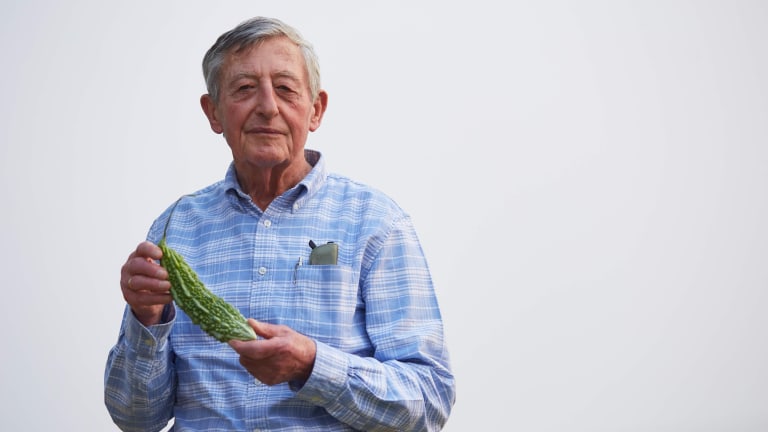
Although Africa is the continent least responsible for climate change, it is likely to be disproportionately affected by its effects, and the agricultural sector is expected to pay the highest cost. Through innovative public-private partnerships, fast-moving consumer goods companies operating in Africa can help smallholder farmers increase their income as part of a strong value chain, access knowledge and networks to help them to adapt to climatic variability, and increase food production as well.
According to the World Bank, agriculture provides employment to 65 percent of Africa’s labor force and accounts for 32 percent of gross domestic product. Smallholder farmers are the primary producers of agricultural output, accounting for about 80 percent of all the farms in sub-Saharan Africa.
Africa’s population is projected to increase from 800 million in 2008 to 1.5 billion people in 2050. Boosting agricultural production to meet rising food demand has become a major concern for African governments. Unfortunately, smallholder farmers have been struggling to increase their productivity and incomes due to a lack of training, quality seed, technology, financing and access to markets.
Live from the #Paris climate conference
Devex is live in Paris with updates on the COP21 summit and what it means for global development cooperation. Bookmark this live-blog to follow our reporters on the ground.
The unpredictable weather patterns caused by climate change add to these challenges by further reducing agricultural production, leading to food price shocks and increasing the vulnerability of smallholder farmers. Africa has seen increased frequency and severity of extreme climatic events, including prolonged droughts, extensive flooding and severe storms. As African smallholder farmers rely heavily on rain-fed agriculture, these changing weather patterns imperil food security and rural livelihoods.
Set against this challenging set of circumstances, commercial agriculture has the potential to build farmers’ resilience to climate change by facilitating access to the latest technologies and technical knowledge. This has spillover benefits for the entire agricultural sector.
In recent years, businesses across the continent have begun to see the value in sourcing of local raw materials in Africa. At Diageo, for example, more than 45,000 local farmers currently provide more than 70 percent of our raw materials on the continent, and we are working hard to increase this figure.
Businesses have a responsibility to create shared value throughout the supply chain and contribute to local economies. In Africa there is no more pertinent way to do this than through bringing local people into supply chains that exist at the very heart of their communities.
One example is Sourcing for Growth, a partnership between the Ethiopian government, the NGO TechnoServe, and Diageo’s subsidiary Meta Abo Brewery. Working alongside the Ethiopian government through its Agricultural Transformation Agency, Meta Abo set out to strengthen the barley value chain, which had been identified as a high opportunity crop, especially when connected to commercial brewing. Through the program, a farmers’ network of over 6,000 has now been assembled.
Each organization plays a crucial role in this partnership. The Ethiopian government through ATA provides strategic and technical input and project facilitation support, in addition to setting a clear and predictable policy enabling environment. Meta Abo contracts directly with smallholder farmers, providing them with prefinancing support for all their inputs and a guaranteed market.
The local NGO partner, TechnoServe, provides on the ground management of the program, with the smallholders who are part of local cooperatives and cooperative unions, managing the individual contracting process for Meta Abo, and providing capacity-building support.
In an exciting and growing trend, the use of new technologies, especially tablets and mobile phones, is proving an effective method to overcome the challenges of access to know-how and market information. In S4G, mobile-enabled tablets are being used in a pilot scheme, in order to gather a wide range of data — such as yield, payments, inputs and plot size, to drive continual improvements — and there is scope for expansion of this function. Another example of this rising trend throughout Africa is Farmer Connect, which is a free mobile-enabled service providing agricultural training and a wealth of useful information in local languages.
In addition, the creation of farmer groups combined with the use of new technologies has allowed a flow of knowledge sharing between farmers about sustainable farming practices. The evidence also shows that this can significantly improve farmers’ access to and knowledge of local markets. In many cases, this has allowed them to make longer term, sustainable investments. Furthermore, this capacity will facilitate access to knowledge about changing climate patterns and daily weather updates. Farmerline in Ghana, for example, sends bulk SMS messages to small scale farmers to keep them up-to-date on weather conditions, which will be critical in managing climate risks.
Climate change is real and is hitting smallholder farmers, who constitute the bedrock of many African societies, the hardest. Ethiopia, for example, has been challenged by drought in the past and faces risks now, but building farming capability and strengthening farming practices is helpful in support of wider food security.
Cooperation between governments, the private sector and civil society can be highly effective in responding to farmers’ needs and creating shared value throughout the supply chain. This can boost prosperity, strengthen capacity in the agriculture sector more broadly, and help mitigate the effects of climate change through expertise and knowledge sharing. We must continue to work together to scale up these kinds of initiatives across the continent.
Planet Worth is a global conversation in partnership with Abt Associates, Chemonics, HELVETAS, Tetra Tech, the U.N. Development Program and Zurich, exploring leading solutions in the fight against climate change, while highlighting the champions of climate adaptation amid emerging global challenges. Visit the campaign site and join the conversation using #PlanetWorth.




